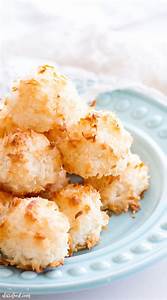Importance of well balance diet
All food contains all of the nutrients we need to be healthy, it is necessary to eat various foods in sufficient amounts. A good diet will include many different foods, and sufficient in quantity and quality to meet an individual’s need for food energy and other micro nutrients.
HERBS AND SPICES
Typical serving size:
Varies according to recipeHOW THEY HARM
Allergies
PesticidesWHAT THEY HEAL
DigestionToday, they are prized for the variety they lend to the diet
Both fresh and dried herbs provide a wide variety of active phytochemicals that promote health and protect against chronic diseases
Herbs are the leaf of the plant while spices, which are usually dried and powdered, are the fruits, flowerbuds, roots, or bark of plants
Rich in minerals and antioxidants, herbs and spices help prevent or treat a variety of ailments
Health Benefits
Aids in digestionMany spices, including allspice, coriander, ginger, nutmeg, and turmeric, have long been recognized as tonics for the tummy
Allspice, which gets its name from its aromatic blend of cinnamon, nutmeg, and clove notes, is believed to aid digestion
Cinnamon, an ancient spice obtained from the dried bark of two Asian evergreens, is a carminative, a chemical that relieves bloating and gas
Coriander seed is thought to be helpful in relieving stomach cramps and may have the ability to kill bacteria and fungus
Large amounts of freshly chopped coriander greens (also known as cilantro) are a good source of vitamin C
Ginger is a common motion sickness remedy, and sipping flat ginger ale may help to ease nausea
Nutmeg has antibacterial properties that may destroy the foodborne bacteria E
coli
Turmeric, beloved by Indian cooks, is used by Ayurvedic practitioners to treat digestive disorders
Fresh leaves or seeds of coriander may be chewed to ease indigestion
Eases inflammation
Ginger is an anti-inflammatory that may help reduce arthritis symptoms
Turmeric is a natural antibiotic used to treat inflammation
Lowers blood pressure
Chives, tiny onion relatives, contain sulfur compounds that may lower blood pressure if eaten in large amounts
QUICK TIP:
Grow your own As long as you have a windowsill or even a sunny table or countertop, you can grow an herb gardenFill a large pot with several different herbs, or plant them individually in smaller pots
Make sure that the pots allow for drainage and that the nearest window gets at least 6 hours of sunlight
Fights colds
Basil, a mainstay in many dishes, is used in larger quantities as a tonic and cold remedy
Thyme can be brewed as tea as a gargle for a sore throat, or as syrup for a cough or congestion
When oregano is brewed as tea, it is said to aid digestion and alleviate congestion
Protects against cancer
Caraway seeds, a popular flavoring for breads, cakes, cheese, and red cabbage, contain a chemical called limonene that may reduce cancer risk
Cumin, a hot spice that seasons chili, curries, and hummus, is being investigated for potential antioxidant and anticancer effects
Substances in ginger—gingerol, shogaol, and zingiberene—have antioxidant capabilities that may help prevent cancer as well as heart disease
Mustard seeds contain allyl isothiocyanates, which studies suggest inhibit the growth of cancer cells
25% of all prescription medicines containcompounds from herbs and other plants
Helps prevent fainting
Black pepper, which accounts for 25% of the world’s spice trade, may help prevent fainting attacks
Sort of like sniffing salts, the odor of black pepper provides a zing that helps some folks snap out of a swoon
Health Risks
Allergic reactionsSome people may be allergic to individual spices
Curry, paprika, and fennel are among the common ones that cause reactions
Pesticides
Recent routine USDA testing found more than 30 unapproved pesticides on cilantro
Cilantro was the first fresh herb to be tested in the 20-year-old program, so it’s possible that other herbs are harboring potentially dangerous pesticides
Allergies
Strain the mixture, then drizzle it over grilled chicken or vegetables
Buying Tip
s
The taste will be fresher and more pungent
Storing Tips
Store spices in airtight containers in a dark, dry cupboard




